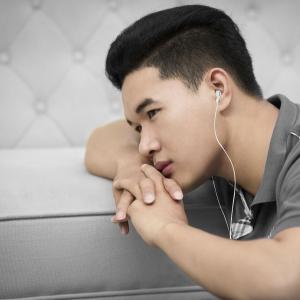How Anxiety Affects Children With Anxiety and Their Friendships
You know that having an anxiety disorder affects your child’s peer relationships, but recent research indicates that not all anxious children have the same relationship difficulties or social impairments.
While this finding smacks of common sense, some of the research outcome specifics were unexpected and enlightening.
The study compared aspects of social functioning between non-anxious (NA) children and those with generalized anxiety disorder (GAD) and social anxiety disorder (SAD). The children were 6 to 13 years of age.
Information was gathered through semi-structured interviews with the children and their parents, and parents filled out questionnaires regarding their child’s friendships, social problems and competence.
What the Study Indicates
Children with GAD are generally conscientious and rule-abiding individuals. These two qualities are more likely than not to foster good friendships. This helps explain some of the study’s findings.
Children with generalized anxiety disorder:
- Have fewer friends than the NA (non-anxious) children.
- Are just as likely to have a best friend as NA children.
- Have the same quality of peer interactions as NA peers and see their friends just as frequently to do things outside of the classroom.
- They have an equal ability to make new friends as NA peers. (Previous studies have shown that kids with GAD are considered as likable as non-anxious children.)
One reason children with GAD may have fewer friends than NA children is that they are more selective. GAD children might avoid friendships with individuals who are risk-takers, are highly adventurous or play loosely with rules. Plus, children with GAD, if they are competent and conscientious, may spend more time at home completing their homework and less time socializing.
Children with social anxiety disorder:
- Have fewer friends than NA children but about the same number as those with GAD.
- Are just as likely to have a best friend as those with GAD, or NA peers.
- Have significant difficulty making new friends.
- Are not as socially competent; the quality of their interactions is poorer. They spend less time with their peers, initiate interaction less frequently, and receive more negative or “ignore” responses from others.
Interestingly, children with SAD are just as likely to be involved in organized groups or clubs as their GAD peers or NA children. This may be because parents of children with SAD enroll them in activities, hoping the child will make friends. Another factor might be that some children’s organizations require or allow the presence of parents, helping a socially anxious child feel more comfortable.
Something important to note is that children who show improvement in symptoms of SAD get treatment not only to address their physical feeling of anxiety but receive social skills training as well.
How the Three Study Groups Are Alike
Participants in all three groups (NA, GAD, SAD) scored nearly the same in the category of social problems. These are difficulties that may develop within interpersonal relationships. The children’s ratings were all in the nonclinical or “normal” range concerning dependence, loneliness, jealousy, clumsiness, and speech problems.
Some researchers speculate that children with SAD because their social engagement is less frequent, have fewer opportunities to develop social problem issues.
Source: Children with Generalized Anxiety Disorder Do Not Have Peer Problems, Just Fewer Friends
Photo: Pixabay






